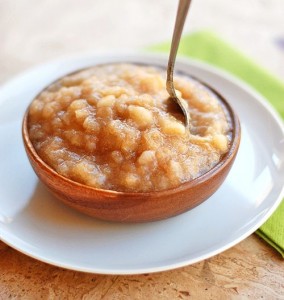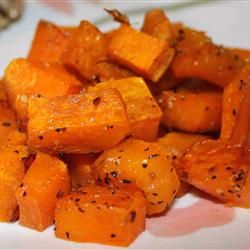It’s National Digestive Disease Awareness Month–See How Fruit and Veggies Can Help
We all know fruit and veggies are filled with good things–fiber, vitamins and minerals. However, when you suffer from a digestive disease, healthy foods can end up being your enemy since they tend to be harder to digest. Unfortunately, a lot of sufferers will avoid these foods and miss out on valuable nutrition, which makes them feel bad. If you are one of those people, I’ve got some good news–you can still eat healthy if you have a digestive disease!
Let’s start with why healthy foods like fruit and veggies tend to bother sensitive stomachs. People who have digestive diseases like Crohn’s disease, ulcerative colitis, diverticulitis, or irritable bowel syndrome have times where their diseases go into a “flare.” This is when the disease is more active and when their digestive system is extra sensitive. I have ulcerative colitis and my doctor explained it like when you have an open sore. You wouldn’t want to put something against that open sore that would be rough and further irritate it, would you? Think of high fiber foods like some produce as being rough and hard to digest. When a person with one of these diseases is in a flare, eating something like that will cause extreme discomfort and only further exacerbate the problem.
Yet, avoiding all fruit and veggies means avoiding vitamins and minerals that your body needs, especially when it’s trying to heal. I know myself that when I eat healthy foods I feel much better than when I simply eat low residue, processed foods with little nutrition. The trick is knowing which fruit and veggies are tummy friendly and also knowing that HOW you prepare them makes a big difference. For example, as much as I love a crisp apple, I can only handle one every so often–they are high in fiber, especially with the skin. If I’m not careful I will get bloated and my stomach will start acting up, even when I’m not in a flare. Now, applesauce is a different story. I can eat that every day and never have a problem. Plus, I’m still getting all the goodness apples have to offer my body.

Some vegetables are ideal for digestive disease sufferers. If you go onto certain online forums that discuss nutrition, you’ll find a universal favorite is butternut squash. This is because it is a great source of potassium and Vitamins A and C. Plus, you can roast it or whip it like you would potatoes.
Another popular fruit for sensitive stomachs is melon. Particularly cantaloupe, which is a good source of folate and high in Vitamins A and C. Melons are easy to digest and can always be found year-round in your local supermarket.

Again, preparation of different produce is important. I find that cooking my veggies until they are soft works wonders. A few other tips are to remove the skin from fruit and vegetables before eating, avoid seeds and limit yourself to eating too many high fiber varieties. These are a few tips, but it’s important to remember that everyone is different. What may work for me, might not be the best approach for you. It takes time to find the right mix for each individual. The Crohn’s and Colitis Foundation have a “Living with Crohn’s and Colitis” page, which contains a few tips like keeping a food diary. There are also links to support groups, where many people have great tips and recipes! The important thing to remember is that you don’t have to give up fruit and veggies or a healthy lifestyle because you have one of these diseases. It will take a little bit of change, but you’ll feel a lot better eating a healthy diet like I do.
See all posts


